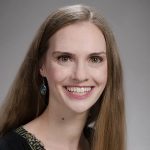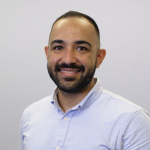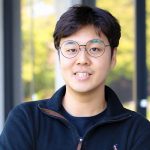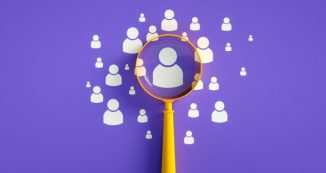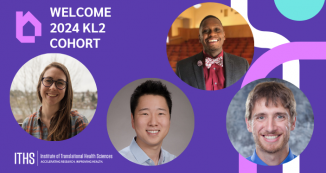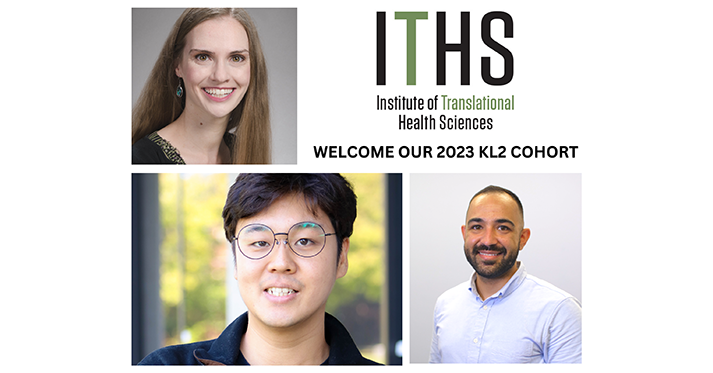
28 Feb Meet the Promising Scholars of the 2023 KL2 Cohort
ITHS is happy to announce the three scholars who make up the 2023 cohort of the KL2 Multidisciplinary Clinical Research Career Development Program: Julie Boiko, Omeid Heidari and James Lee. These early career investigators will benefit from the protected research time, salary support, research funding, mentorship and translational research training offered by the NIH-sponsored KL2 program. Their 3-year stint begins March 1, 2023.
Each scholar will receive training tailored to their particular research and career development needs, while also gaining full knowledge of the full spectrum of health sciences research. In addition, this cohort will attend interactive seminars along with the 2021 and 2022 cohorts, getting training in the core competencies for translational research developed by the Clinical and Translational Science Award (CTSA) institutes. Scholars will also have the opportunity to enhance their presentation and writing skills.
Dr. Laura Riolobos is a molecular biologist who was part of the 2018 group of KL2 scholars. Of her time in the program, she says, “My experience as a KL2 scholar has changed the questions I want to answer in my research, I think further in the future to evaluate how my current research can be and will be applied to move the lung cancer field forward and actually help patients. [P]articipating the KL2 program has been by far the best opportunity I had to develop translational skills and move forward in my career.” We hope this year’s new cohort will have as valuable an experience!
The 2023 Cohort
Julie Boiko, MD, MS, is a researcher based at the Fred Hutch Cancer Center. She studies the immunology of chronic graft-versus-host-disease using computational genomic approaches to identify how to improve outcomes for patients undergoing hematopoietic cell transplantation. Of her expectations for her time with the KL2 program, she says, “I am looking forward to working with investigators of diverse backgrounds to translate discoveries from bench to bedside.”
From the UW School of Nursing comes Omeid Heidari, MPH, NP, PhD. His research centers around development of a telehealth protocol for engagement in care for co-occurring HIV and opioid use disorder. He tells, “I am looking forward to the collaborative and multidisciplinary KL2 training to address disparities in care access and engagement and expanding meaningful treatment and harm reduction services with a flexible telehealth intervention.”
Our third 2023 KL2 Scholar is James D. Lee, PhD, who is based in the UW School of Medicine. “My project, entitled ‘Implementation Toolkit to Enhance EBP Among Marginalized Families (I-TEAM)’, will focus on developing an implementation toolkit for early intervention providers who work with marginalized families in Washington state to increase their EBP fidelity and cultural responsiveness,” Dr. Lee tells us. “Through the KL2 program, I hope to achieve both my research and career development plans through mentorship from leaders in the field of autism and implementation science research.”
The KL2 program is funded by the National Institutes of Health through ITHS’ grant with the National Center for Advancing Translational Sciences. Part of the KL2 program mission is to provide an entryway for early investigators to the field of Translational Science. Visit the ITHS Education pages to learn more about the KL2 program and other education offerings from ITHS.




